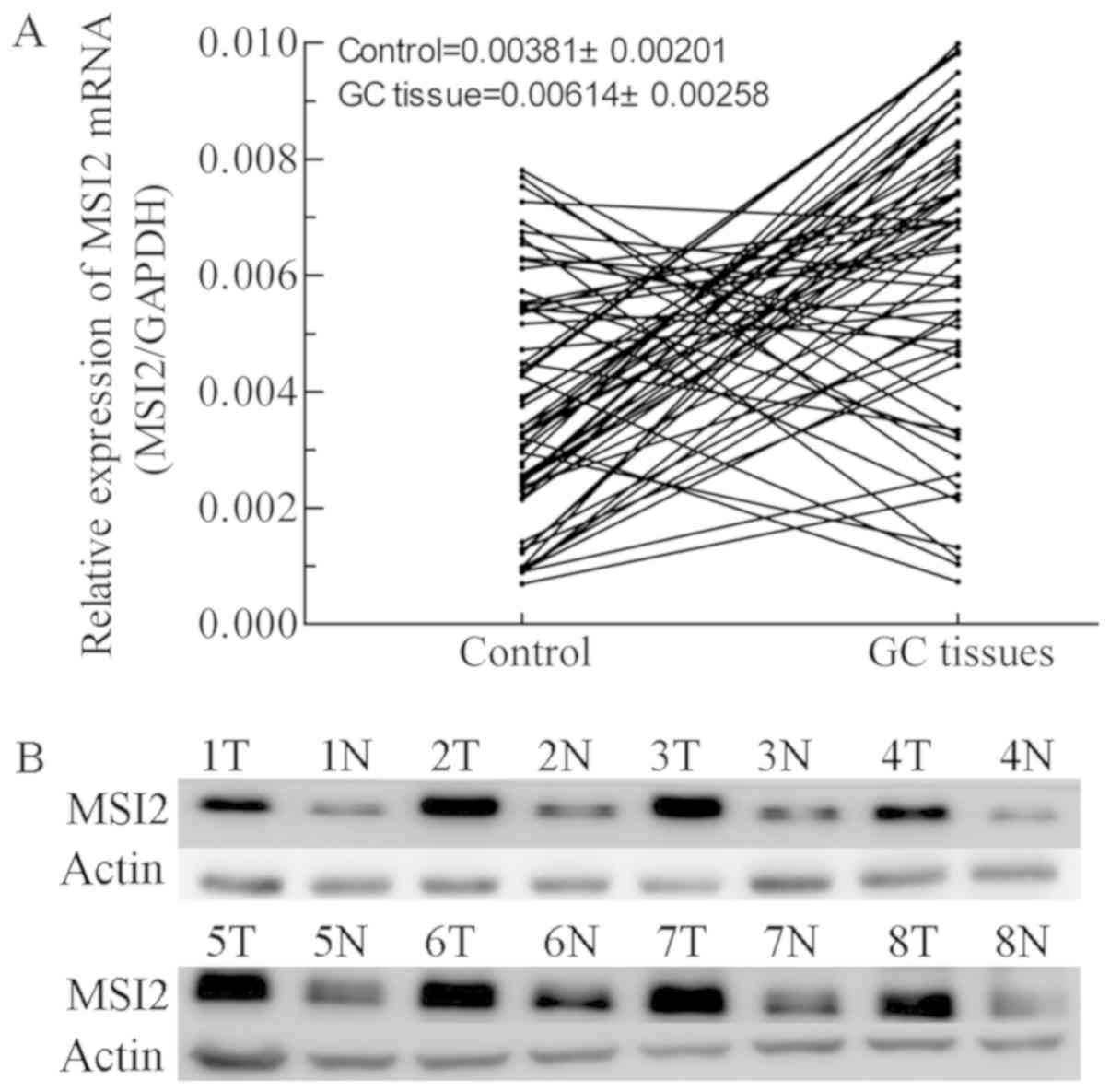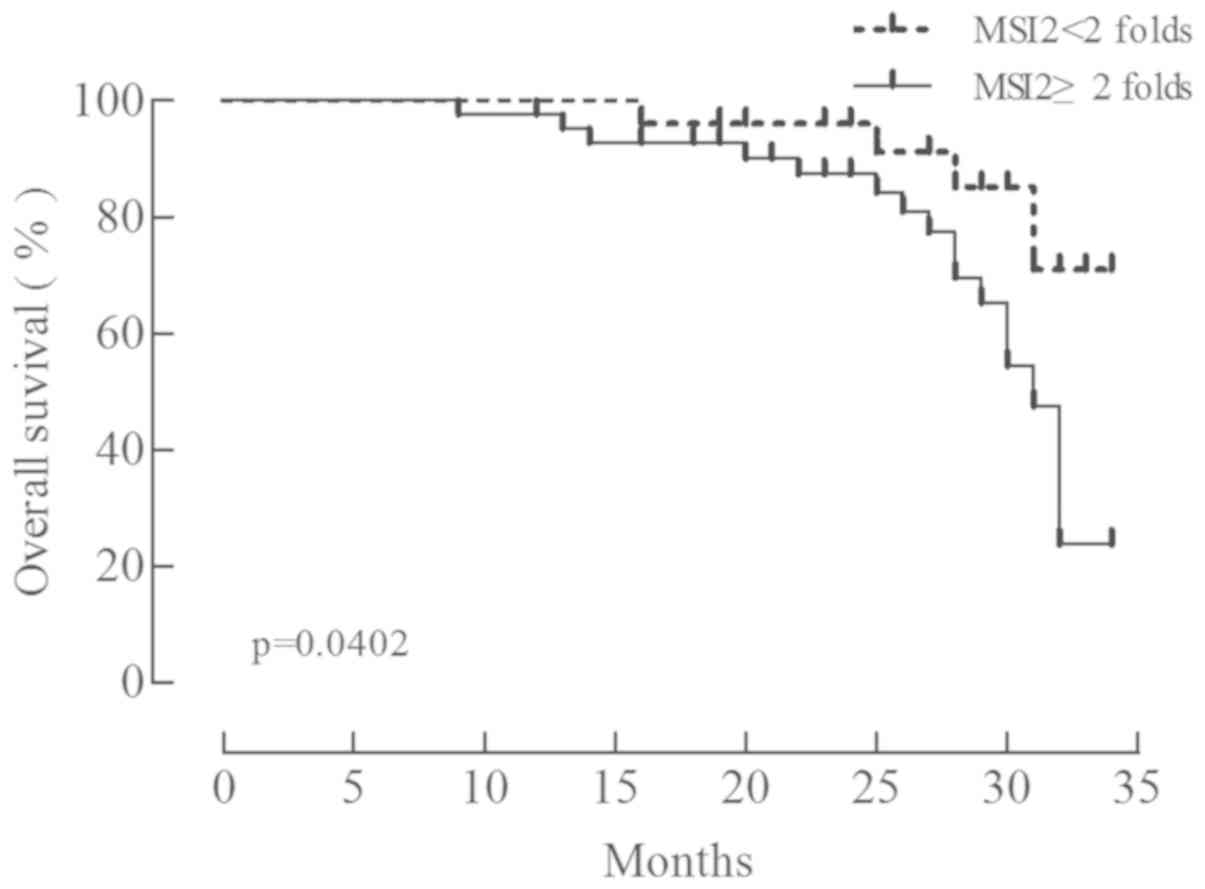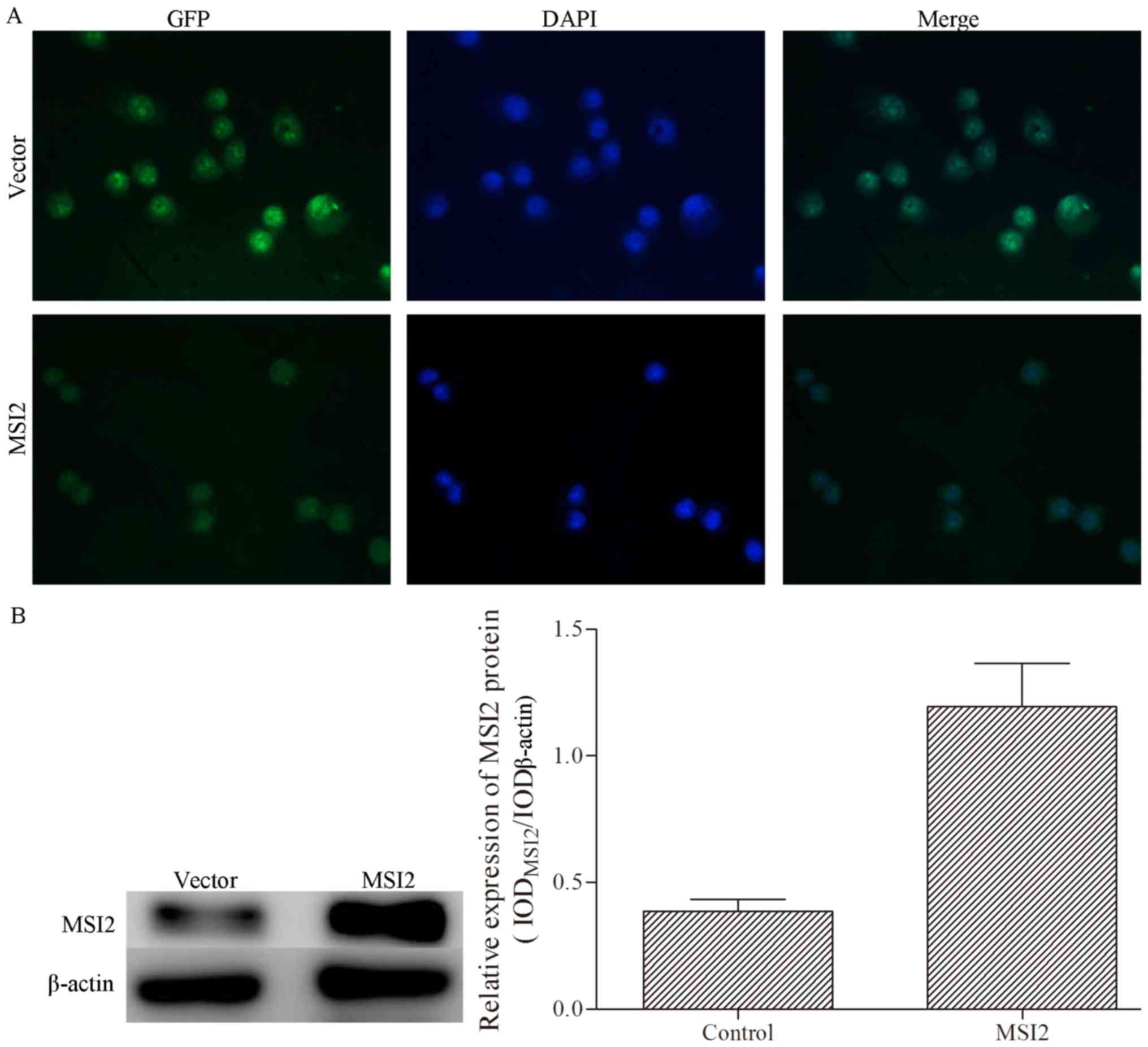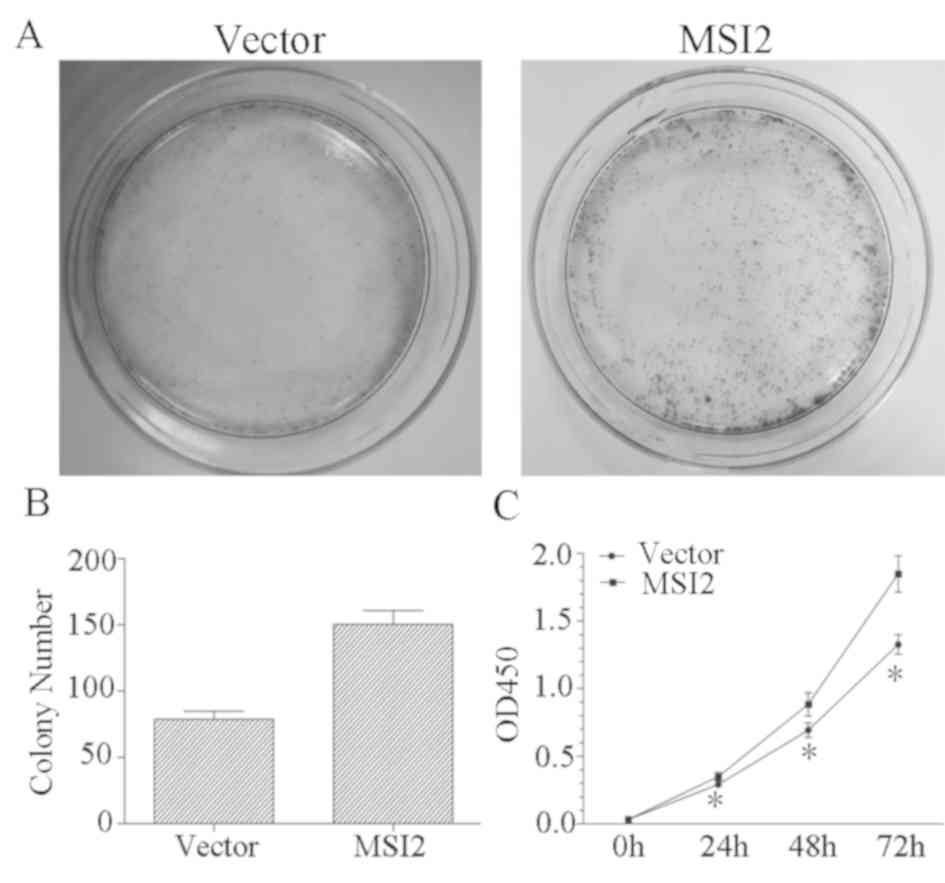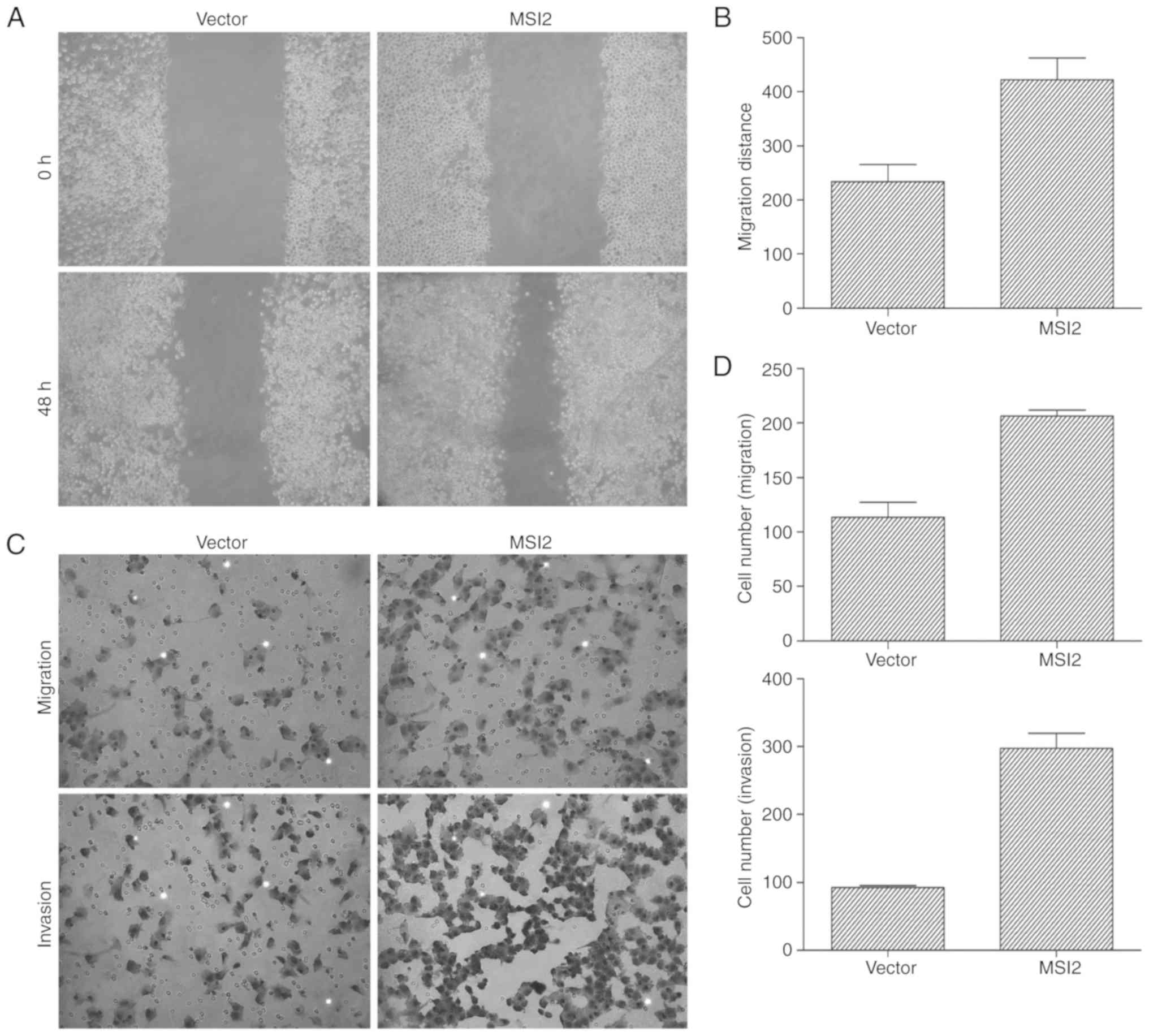|
1
|
Ferlay J, Soerjomataram I, Dikshit R, Eser
S, Mathers C, Rebelo M, Parkin DM, Forman D and Bray F: Cancer
incidence and mortality worldwide: Sources, methods and major
patterns in GLOBOCAN 2012. Int J Cancer. 136:E359–E386. 2015.
View Article : Google Scholar : PubMed/NCBI
|
|
2
|
Bertuccio P, Chatenoud L, Levi F, Praud D,
Ferlay J, Negri E, Malvezzi M and La Vecchia C: Recent patterns in
gastric cancer: A global overview. Int J Cancer. 125:666–673. 2009.
View Article : Google Scholar : PubMed/NCBI
|
|
3
|
Torre LA, Bray F, Siegel RL, Ferlay J,
Lortet-Tieulent J and Jemal A: Global cancer statistics, 2012. CA
Cancer J Clin. 65:87–108. 2015. View Article : Google Scholar : PubMed/NCBI
|
|
4
|
Lordick F and Terashima M: Gastric cancer
adjuvant therapy. Best Pract Res Clin Gastroenterol. 30:581–591.
2016. View Article : Google Scholar : PubMed/NCBI
|
|
5
|
Catalano V, Labianca R, Beretta GD, Gatta
G, de Braud F and Van Cutsem E: Gastric cancer. Crit Rev Oncol
Hematol. 54:209–241. 2009. View Article : Google Scholar
|
|
6
|
Sugimura T, Terada M, Yokota J, Hirohashi
S and Wakabayashi K: Multiple genetic alterations in human
carcinogenesis. Environ Health Perspect. 98:5–12. 1992. View Article : Google Scholar : PubMed/NCBI
|
|
7
|
Guo X, Liu W, Pan Y, Ni P, Ji J, Guo L,
Zhang J, Wu J, Jiang J, Chen X, et al: Homeobox gene IRX1 is a
tumor suppressor gene in gastric carcinoma. Oncogene. 29:3908–3920.
2010. View Article : Google Scholar : PubMed/NCBI
|
|
8
|
Wang Z, Tang F, Qi G, Yuan S, Zhang G,
Tang B and He S: KDM5B is overexpressed in gastric cancer and is
required for gastric cancer cell proliferation and metastasis. Am J
Cancer Res. 5:87–100. 2014.PubMed/NCBI
|
|
9
|
Okano H, Imai T and Okabe M: Musashi: A
translational regulator of cell fate. J Cell Sci. 115:1355–1359.
2002.PubMed/NCBI
|
|
10
|
Siddall NA, McLaughlin EA, Marriner NL and
Hime GR: The RNA-binding protein Musashi is required intrinsically
to maintain stem cell identity. Proc Natl Acad Sci USA.
103:8402–8407. 2006. View Article : Google Scholar : PubMed/NCBI
|
|
11
|
Katz Y, Li F, Lambert NJ, Sokol ES, Tam
WL, Cheng AW, Airoldi EM, Lengner CJ, Gupta PB, Yu Z, et al:
Musashi proteins are post-transcriptional regulators of the
epithelial-luminal cell state. Elife. 3:e039152014. View Article : Google Scholar : PubMed/NCBI
|
|
12
|
Kharas MG, Lengner CJ, Al-Shahrour F,
Bullinger L, Ball B, Zaidi S, Morgan K, Tam W, Paktinat M, Okabe R,
et al: Musashi-2 regulates normal hematopoiesis and promotes
aggressive myeloid leukemia. Nat Med. 16:903–908. 2010. View Article : Google Scholar : PubMed/NCBI
|
|
13
|
He L, Zhou X, Qu C, Hu L, Tang Y, Zhang Q,
Liang M and Hong J: Musashi2 predicts poor prognosis and invasion
in hepatocellular carcinoma by driving epithelial-mesenchymal
transition. J Cell Mol Med. 18:49–58. 2014. View Article : Google Scholar : PubMed/NCBI
|
|
14
|
Wang S, Li N, Yousefi M, Nakauka-Ddamba A,
Li F, Parada K, Rao S, Minuesa G, Katz Y, Gregory BD, et al:
Transformation of the intestinal epithelium by the MSI2 RNA-binding
protein. Nat Commun. 6:65172015. View Article : Google Scholar : PubMed/NCBI
|
|
15
|
Emadi-Baygi M, Nikpour P, Mohammad-Hashem
F, Maracy MR and Haghjooy-Javanmard S: MSI2 expression is decreased
in grade II of gastric carcinoma. Pathol Res Pract. 209:689–691.
2013. View Article : Google Scholar : PubMed/NCBI
|
|
16
|
Sobin LH, Gospodarowicz MK and Wittekind
C: TNM classification of Malignant Tumours. (7th). Wiley-Blackwell.
Hoboken, NJ. 2009.
|
|
17
|
Capes-Davis A, Theodosopoulos G, Atkin I,
Drexler HG, Kohara A, MacLeod RA, Masters JR, Nakamura Y, Reid YA,
Reddel RR and Freshney RI: Check your cultures! A list of
cross-contaminated or misidentified cell lines. Int J Cancer.
127:1–8. 2010. View Article : Google Scholar : PubMed/NCBI
|
|
18
|
Livak KJ and Schmittgen TD: Analysis of
relative gene expression data using real-time quantitative PCR and
the 2(-Delta Delta C(T)) method. Methods. 25:402–8. 2001.
View Article : Google Scholar : PubMed/NCBI
|
|
19
|
Zheng L, Wu C, Xi P, Zhu M, Zhang L, Chen
S, Li X, Gu J and Zheng Y: The survival and the long-term trends of
patients with gastric cancer in Shanghai, China. BMC Cancer.
14:3002014. View Article : Google Scholar : PubMed/NCBI
|
|
20
|
Strong VE, Wu AW, Selby LV, Gonen M, Hsu
M, Song KY, Park CH, Coit DG, Ji JF and Brennan MF: Differences in
gastric cancer survival between the U.S. and China. J Surg Oncol.
112:31–37. 2015. View Article : Google Scholar : PubMed/NCBI
|
|
21
|
Leja M, You W, Camargo MC and Saito H:
Implementation of gastric cancer screening-the global experience.
Best Pract Res Clin Gastroenterol. 28:1093–1106. 2014. View Article : Google Scholar : PubMed/NCBI
|
|
22
|
Figueiredo C, Costa S, Karameris A and
Machado JC: Pathogenesis of gastric cancer. Helicobacter. 20 Suppl
1:S30–S35. 2015. View Article : Google Scholar
|
|
23
|
Sakakibara S, Nakamura Y, Satoh H and
Okano H: Rna-binding protein Musashi2: Developmentally regulated
expression in neural precursor cells and subpopulations of neurons
in mammalian CNS. J Neurosci. 21:8091–1107. 2001. View Article : Google Scholar : PubMed/NCBI
|
|
24
|
Mansouri L, Gunnarsson R, Sutton LA, Ameur
A, Hooper SD, Mayrhofer M, Juliusson G, Isaksson A, Gyllensten U
and Rosenquist R: Next generation RNA-sequencing in prognostic
subsets of chronic lymphocytic leukemia. Am J Hematol. 87:737–740.
2012. View Article : Google Scholar : PubMed/NCBI
|
|
25
|
Thol F, Winschel C, Sonntag AK, Damm F,
Wagner K, Chaturvedi A, Göhring G, Schlegelberger B, Lubbert M,
Fiedler W, et al: Prognostic significance of expression levels of
stem cell regulators MSI2 and NUMB in acute myeloid leukemia. Ann
Hematol. 92:315–323. 2013. View Article : Google Scholar : PubMed/NCBI
|
|
26
|
Wang MH, Qin SY, Zhang SG, Li GX, Yu ZH,
Wang K, Wang B, Teng MJ and Peng ZH: Musashi-2 promotes hepatitis
Bvirus related hepatocellular carcinoma progression via the
Wnt/β-catenin pathway. Am J Cancer Res. 5:1089–1100.
2015.PubMed/NCBI
|
|
27
|
Hanahan D and Weinberg RA: Hallmarks of
cancer: The next generation. Cell. 144:646–674. 2011. View Article : Google Scholar : PubMed/NCBI
|















